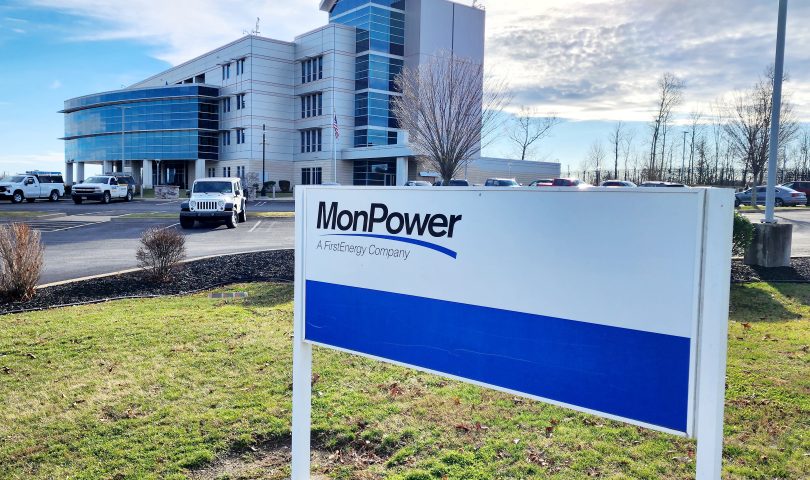MORGANTOWN – As part of their current rate hike case before the state Public Service Commission, Mon Power and Potomac Edison are proposing a change in how net metering customers are credited for the power they generate.
The companies say it’s an issue of fairness. But an affordable energy advocacy coalition views the move as a step toward slowing the growth of solar energy in the state and potentially harming customers.
Net-metering customers generate all or a portion of their own power, typically through solar, and receive credits on their bill for that. They receive a full 1-to-1 credit, meaning energy given to the utility is worth the same as energy bought from the utility. Excess energy received from the customer is credited to the customer’s account.
The proposal is spelled out in a paragraph near the end of a 219-page June PSC filing containing testimony by officials and staff of FirstEnergy, the companies’ parent company.
Stephanie L. Fall, FirstEnergy Service Company manager in the Rates and Regulatory Affairs Department for West Virginia and Maryland told the PSC they propose to adjust the amount the customer will be credited for either kilowatt hours (kWh) produced in a given month or excess kWh credited against a future month to the wholesale price level for energy.
The change, she said, would only affect customers who enroll in the Net Energy Metering Rider after March 27, 2024.
“The change proposed to the credit is appropriate,” she said, “so that other customers are not subsidizing net metering customers and so that net metering customers actually pay for the distribution, transmission, and capacity facilities that they use and costs that are incurred for them.”
West Virginians for Energy Freedom – a coalition of people, community organizations, local businesses, municipalities and elected officials advocating for energy freedom in West Virginia – said business and community leaders who support solar energy met on Tuesday to talk about the proposal.
The proposal, they said, raises “concerns that the end of net metering for half of the state could slow the rapid growth of West Virginia’s solar industry, as well as put the energy grid at risk and disadvantage customers.”
WVEF says changing the 1-to-1 credit to a credit based on wholesale price means customers will receive less credit than what they pay for power.
“Owning your own power is all about self-reliance, which government should be encouraging,” said Emmett Pepper, attorney for West Virginia Citizen Action Group, Solar United Neighbors, and Energy Efficient West Virginia. “Government-created monopoly utilities think they don’t make enough from ratepayers and want to undercut customers’ ability to be less dependent on the monopolies. The PSC should reject this proposal and encourage more ways for West Virginians to take control of their own energy bills.”
Leah Barbor, West Virginia state director of Solar United Neighbors, said, “This policy ensures West Virginia solar owners receive fair-market credit for the power they generate but don’t use themselves. It also creates jobs, spurs economic growth, and enhances grid resilience. Net metering is the backbone of equitable solar policy, and we need to preserve the full integrity of West Virginia’s current net metering policy to ensure its broad benefits continue to positively impact all West Virginians.”
WVEF argues that customer-produced energy, including solar, promotes cost savings and a cleaner energy mix, and contributes to grid resilience – as surplus energy helps reduce strain and increase the reliability of the power supply.
The companies are seeking a $207 million base rate increase – $207,452,687 to be exact. They say it would add $18.07 to the monthly bill of an average residential customer using 1,000 kWh, raising it from $120.20 to $138.27 – a 15% increase.
Along with maintaining a reasonable profit for investors, the rate case also includes covering costs for a planned Energy Assistance Outreach Team “to increase awareness, education and participation in energy assistance programs that are available to low-income residential customers,” and a proposed new Infrastructure Investment Program to “primarily address reliability concerns in rural communities.”
The PSC will hold rate case hearings next March.
WVEF notes that while the proposal does not affect Appalachian Power or other AEP customers, “solar leaders are concerned about the perception of a precedent that could later be argued by AEP, as well.”
Apart from net metering, Mon Power plans to build, own and operate five utility-scale solar facilities located on property owned by Mon Power or its affiliates. One of them, now in the works, is set next to its Fort Martin plant in Maidsville.
Email: dbeard@dominionpost.com




